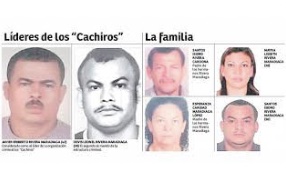Honduras’ geographic location makes it an ideal transit hub for drug trafficking towards the United States. And the relationships between criminals and public actors in all the steps of the smuggling are evident, as multiple documents reveal and Emilia Ziosi (University of Milan) analysed for the LSE’s Journal of Illicit Economies and Development.
Despite being a transit hub for cocaine and its chemical precursors since the 1970s, Honduras has emerged as a focal point for drug trafficking in the Americas in the last two decades. Direct cocaine flows to Honduras started rising especially after the 2009 coup d’état that brought down ex-President Manuel Zelaya (2006-2009).
The political instability created by the coup, coupled with the suspension of US counternarcotics assistance and the diversion of national resources to the maintenance of order and stability in the country, contributed to a drastic rise in direct cocaine-loaded flights from Colombia and Venezuela. However, there are other factors that explain this growth. The country’s geographic location, in between producer nations in South America, and the United States, one of the main destination countries for cocaine trafficking, makes it an ideal transit hub.
On top of this, important shifts in the global supply chain of cocaine as a result of suppression initiatives of the US war on drugs, a phenomenon known as ‘the balloon effect’, caused the disruption of trafficking routes in the Caribbean and simply moved transit routes to Mexico and Central America. This, coupled with internal factors such as weak capacity among law enforcement institutions and high levels of impunity and corruption, have contributed to Honduras’ growing importance as a major transit country for drug trafficking. By 2013, approximately 87% of all cocaine smuggling flights leaving South America were first stopping in Honduras.
The country has gained considerable international attention recently, with the passing of the extradition law between Honduras and the US in 2012 for matters of drug trafficking and terrorism. Several Honduran politicians, law enforcement officers and businessmen have been charged – and in some cases, sentenced – in the US for their connections with local transportista groups, small family-based criminal groups present in Central America who are in charge of storing and transporting drugs from one side to another of the country. This happened especially after the leaders of one of the most powerful Honduran transportista groups, the Cachiros, decided to turn themselves in in the US and started collaborating with the DEA (Drug Enforcement Administration) out of fear of being murdered by their rivals.
The Cachiros case in Honduras
Most of the US official judicial documents concerning Honduran state actors’ alleged links with the Cachiros are available for public consultation on the United States Department of Justice website, as well as on online sources such as the InSight Crime foundation, El Heraldo, Docketbird, and Scribd. The documents reveal the extent to which the Cachiros were allegedly working side by side with politicians and law enforcement officials to receive large loads of cocaine and transport them westwards towards the border with Guatemala, and eventually to the US on behalf of Mexican drug traffickers. These documents are also an exceptional resource to elucidate Honduran politicians, businessmen and law enforcement officers’ alleged involvement and active and/or passive role within the trade.
Read full article
Enablers of cocaine trafficking: Evidence of state-crime links from contemporary Honduras


 Cannabis News2 years ago
Cannabis News2 years ago
 One-Hit Wonders2 years ago
One-Hit Wonders2 years ago
 Cannabis 1012 years ago
Cannabis 1012 years ago
 drug testing11 months ago
drug testing11 months ago
 Education2 years ago
Education2 years ago
 Cannabis2 years ago
Cannabis2 years ago
 Marijuana Business Daily2 years ago
Marijuana Business Daily2 years ago
 California2 years ago
California2 years ago















